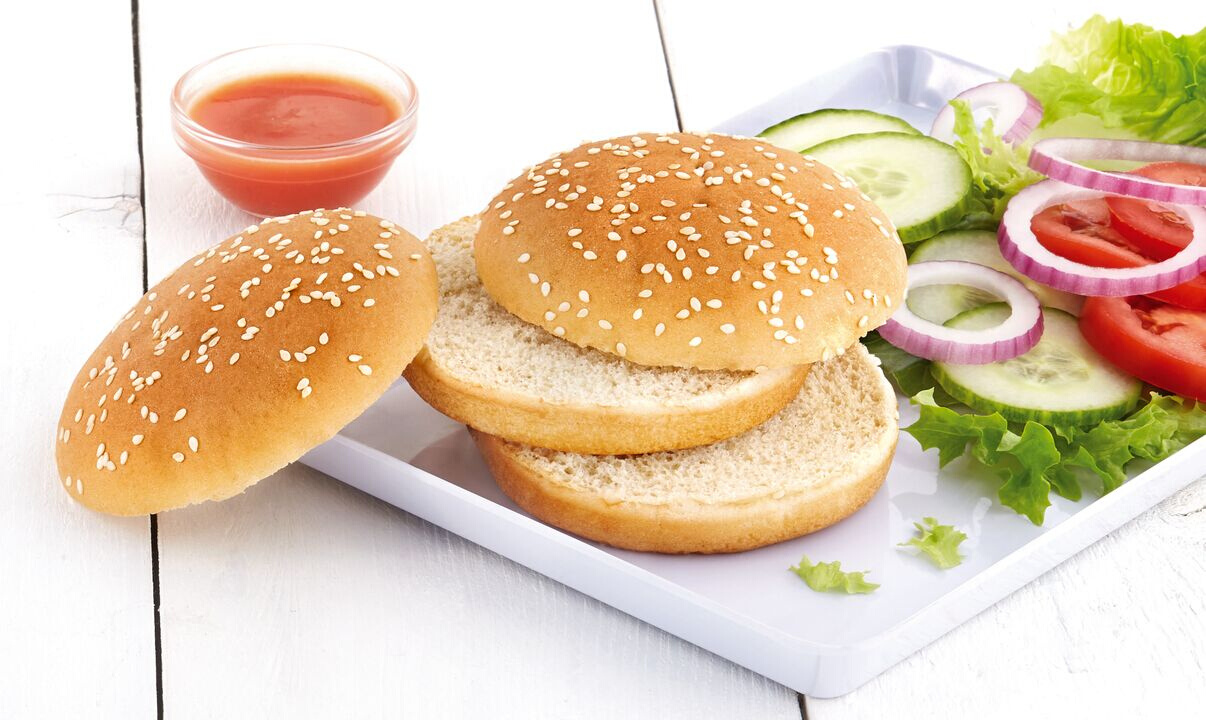It’s all about the Bun!
When it comes to burgers, the quality of the bun is key.
Quality fluctuations are a “no-go” for burger buns. International fast-food chains expect their suppliers to maintain strict production standards.
In the summer of 2018, burger buns hit the headlines of the US press after the Texas’ fast-food chain In-N-Out Burger decided to close its restaurants temporarily. The reason given was the poor quality of its burger buns.
How can the baking industry prevent such a fiasco?
Our experts from DeutscheBack and sister companies share their own experience on this. Pong Tip Keng, Regional Director R&D and TCS of Stern Ingredients Asia-Pacific, the production of burger buns is no easy matter. There must be no noticeable deviations from the characteristics and appearance as specified by the fast-food restaurant chains.
VOLUME, TEXTURE, COLOUR, TASTE – each bun must be exactly the same as the others.
Burger buns are soft rolls with a high sugar and fat content. It should have an extremely soft, fluffy crumb and a fine texture. The whole bun should have a golden colour with very little white at the side. The crust must not have any no cracks or blisters and should be evenly browned. In spite of their soft consistency, the buns have to be very stable.
The shape must be right. The height of a standard bun should be between 4.6 and 4.9 cm. That only gives a margin of 3 millimeters!
Where do the difficulties lie in the production of burger buns?
The bun flour should have good viscoelastic properties and a high gas retention capacity. A high protein content, soft gluten – is ideal. While the strong gluten flour tends to be a disadvantage. To deal with this you have to work with special proteases to achieve a soft, supple dough structure.
In Asia, flours differ greatly in terms of their protein content and gluten quality. Weak flours can result in blistering and a coarse crumb, whereas flours that are too strong can cause a brittle structure.
It is crucial to avoid faults of that kind in the products, otherwise it would result to a lot of costly rejects.
One of the main tasks is to strengthen the structure of the dough and improve its fermentation tolerance. Some bakeries work with 70% sponge.
Although that is good for water binding, it can cause problems with stability, especially in conjunction with long fermentation periods during preparation of the dough. Then the degradation processes take place, which can have a negative effect on the quality of the buns.
In cases when the dough sticks to the fermentation tray, this would result in uneven patches and pits on the underside of the buns. Moreover, doughs of that kind often have too little resistance to mechanical stress.
The dough should have a flowing consistency. If the structure is too firm and the dough will not fill the baking pan properly. The dough will have poor pan flow which will result in buns having different heights. Emulsifiers or emulsifying enzyme systems are important, too, in order to make the dough more supple and ensure a fine crumb texture.
DeutscheBack’s TopBake Bun Improver can help to increase the stability of the dough and good pan flow.
Why is fine crumb important?
The crumb must have a fine, even texture so that the bun does not become saturated when filled. When the bun is toasted, the sugar in it caramelizes and closes the pores on the cut surfaces. If the texture is too coarse, the crumb could soak up the meat juice from the hamburger or the sauce. That is a totally undesirable effect.
Another crucial point is reached just after baking. The products are cooled down quickly – then it may happen that the buns might shrink and bend. The dough relaxing enzymes on DeutscheBack TopBake Bun Improver can prevent this effect.
Shelf life is one of the most important aspect.
The stability of the baked products is important for other reasons because the buns are packed on top of each other during packing.
That can easily result in breakage. Also, under humid conditions you often need preservatives to delay microbiological spoilage. And maltogenic amylases and emulsifiers help to keep the buns fresh for up to six weeks.
DeutscheBack offers solutions to not only improve the quality of the buns to produce consistent volume with a fine texture and optimal crumb properties; we also work with our subsidiaries in Stern-Wywiol Gruppe to provide solutions that cater to the latest trend in the market like vegan and egg-free solutions as well. Our wide range of solutions means that we are well-equipped with local knowledge to assist you to producing high quality and fresh burger buns for your customers.
If you have are interested in our DetuscheBack TopBack Bun Improver, get in touch with us today!



